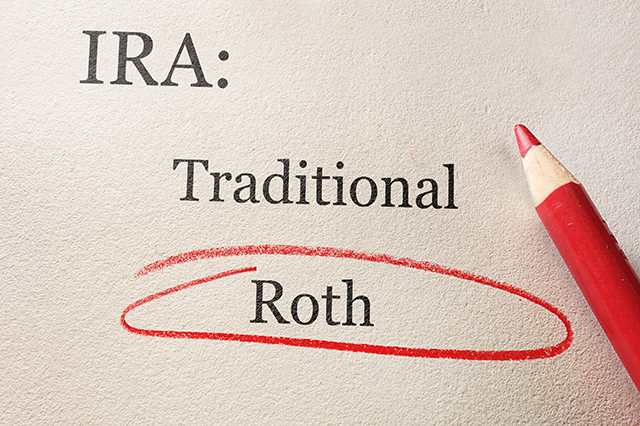Have you started saving for retirement? Recent studies have revealed that nearly half of all Americans entering retirement age do not have a retirement savings account.
Enrolling in a 401(k) plan is one of the most popular and effective ways you can save, but are you really taking full advantage of your 401(k)? How can you be sure you’re getting the biggest bang for your buck?
Whether you’re already signed up or deciding whether to enroll, today we’re unpacking the 401(k) rules you need to know, plus how you can ensure you’re getting the biggest returns.
401(k) rules basics
A 401(k) is a retirement savings plan offered through your workplace. You can contribute up to $18,500 per year, plus an extra $6,000 of “catch-up contributions” if you’re age 50 or above.
With your 401(k) you are investing in mutual funds, stocks and bonds, and could typically receive a rate of return of 5 percent or more. (The average bank savings account yields an interest rate of 1 percent or less.)
One of the big perks of a 401(k) is that it’s “tax-deferred.” Your contributions are taken from your paycheck before taxes. You’ll pay taxes when you make withdrawals during retirement, but this may be advantageous if you’re in a lower tax bracket than during your career.
Another advantage is that 401(k) rules allow your employer to match your contributions up to the percentage of their choice. This is free money and, if possible, you should contribute the max amount to your 401k that will secure your employer’s full match.
401(k) withdrawals
There’s a big incentive to let your money grow. Early withdrawals will hit you with a 10 percent penalty in addition to taxes (unless you qualify for a financial hardship withdrawal).
You can begin making penalty-free withdrawals when you retire at age 55 or older. Then at age 70½, 401(k) rules state that you must start taking required minimum distributions. (Though deferring is possible if you still work for the sponsoring company.)

Types of 401(k)s
Some companies may also offer a Roth 401(k) option. You’ll pay taxes on your contributions, but your withdrawals are completely tax-free. (This makes sense if you expect to be in a higher tax bracket upon retirement.)
And if you’re self-employed (and have an Employer Identification Number) you have the option of opening an individual 401(k). This has a contribution limit of $54,000, plus an extra $6,000 if you’re 50 or above.
How to get the biggest returns
A 401(k) differs from a pension in that it allows you to choose how your money is invested. The most common investment fund options are target-date funds, mutual funds and index funds.
Your best choice? Research has shown that index funds will give you the highest returns.
Index funds are designed to track the performance of a market index like the S&P 500. They regularly outperform both mutual funds and target-date funds and have much lower account fees.
Mutual funds do give you more flexibility to fine-tune your investments, but this also comes with higher account fees.
Target-date funds have the highest account fees as they are closely managed (this also makes them a good “set it and forget it” option). You’ll get the best results from a target-date fund if you put your entire 401(k) into it, as it’s designed to have the correct proportions of risk. (Higher risk stocks are traded out for low-risk bonds as your retirement date approaches.)
As a general rule, your “expense ratio” (account fees) should be less than 1 percent, and the closer to zero the better. High account fees will cost you tens of thousands of dollars over the years.
Are your investments paying off?
Your 401(k) doesn’t need too much hands-on intervention, but you should definitely be checking your quarterly statements to make sure your investments are working for you.
Here’s what to look for on your account statements:
Contributions: Have you been contributing enough to get your employer’s full match? If not, increase your contributions so you can take full advantage of that free cash.
Account Fees: If your expense ratio is close to 1 percent, or increasing over time, invest in a cheaper fund.
Fund Performance: How is your fund performing compared to other funds of its type? If it’s underperformed consistently over the long term, consider making moves.
Holdings: Do your holdings of stocks and bonds match your desired level of risk? If you want 90 percent of your holdings to be stocks, but the percentage has shifted down to 60 percent, it may be time to “rebalance” your account.
Are you enrolled in a 401(k)? Tell us about your experience with a 401(k) in the comments below!
To find out how AAA can help you save for all sorts of life changes and milestones, visit AAA.com/Financial and AAA.com/Insurance.
8 Thoughts on “Are You Following These 401(k) Rules?”
Leave A Comment
Comments are subject to moderation and may or may not be published at the editor’s discretion. Only comments that are relevant to the article and add value to the Your AAA community will be considered. Comments may be edited for clarity and length.


















If I still work after 70+half do I have to start taking money out of 401k as my employer continues to match contributions and how much would the amount be?
Hi there!
You may want to visit AAA.com/Financial or call 800-793-0508, and a helpful AAA Financial Services representative will be happy to help you with your question.
Thanks! 😉
-Dana
The maximum IRA contribution for 2018 has been increased from $18,000 to $18,500.
Hi Robert,
Thanks so much for reading! We’ve updated the story to include the new regulations.
-Dana
The contribution limits posted in this article are outdated and reflect year 2017 limits. Per IRS Regulations for year 2018 the limits are $18,500 with catch-up contributions for above age 50 remaining at $6,000. Another typo? Please review your article, IRS regulations and update as needed.
Thanks and best of luck!
Hi Lisa,
Thanks so much for pointing that out. We’ve updated the story to reflect the current regulations. Thanks!
-Dana
Yikes – mutual funds, stocks do not primarily generate “interest” [“With your 401k you are investing in mutual funds, stocks and bonds, and will typically receive an interest rate of 5 percent or more.] – there is a HUGE difference !! Bonds, of course, will – but this statement is substantially misleading. Hopefully just a typo, but it should be corrected. Hope this helps.
Hi Kim!
Thanks so much for pointing that out. We’ve fixed it in the story.
Thanks for reading!
– Dana